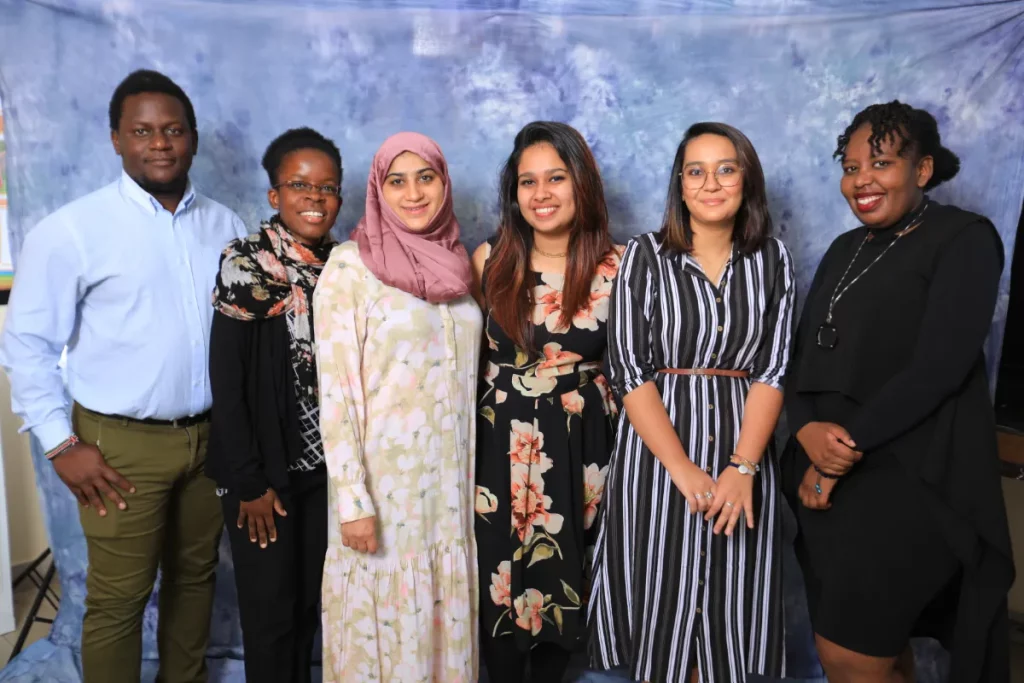Message from Lead School Counsellor
At Premier Academy we believe that mental health and wellbeing is one of our biggest priorities. For us to strive to the best of our ability, we all need to keep mentally healthy. The counseling team facilitates and guides our student wellness programs, ensuring that everyone learns in a safe, healthy, and supportive environment.
School counselors advocate, mediate, coordinate, consult, lead and collaborate with teachers, administrators and parents to ensure students are receiving the needed support.
As a school we encourage parental involvement and we want you to know that we respect your concerns. Parents may contact a school counselor to help their children with a variety of issues, such as academic achievement; new school registration, orientation and transition; test interpretation; special needs; student crisis situations; family transitions; and higher education, but to mention a few.
Please do not hesitate to get in touch – counsellor@premier-sri.ac.ke
WHO ARE SCHOOL COUNSELLORS?
HOW CAN SCHOOL COUNSELLORS HELP?
Counsellors usually provide solution focused therapy sessions. What is discussed during the sessions is confidential. The length of the sessions may vary depending on the issues being addressed. The School Counsellors address personal, social, developmental, emotional and academic issues. Throughout the year, the School Counsellors facilitate events and workshops focusing on different topics and themes which offer support for the students, staff and parents.
HOW DOES A STUDENT SEE THE SCHOOL COUNSELLORS?
Counselling is a voluntary process. Your child may seek the School Counsellor independently, or a teacher/ parent may recommend it.
HOW DOES A PARENT/ GUARDIAN SEE THE SCHOOL COUNSELLORS?
WHAT ISSUES CAN THE SCHOOL COUNSELLORS HELP WITH?
There are a variety of challenges the school counsellors can offer support in, for example:
- Peer pressure
- Friendships and relationships
- Bullying
- Exam and academic pressure
- Family dynamics
- Transition
- Grief and loss
- Body image and self-esteem
- Self-harm, etc.
- Trauma
HOW CAN A PARENT/ GUARDIAN SUPPORT THE COUNSELLING PROCESS?
Therapy can lead to better relationships, solutions to specific problems, significant reductions in feelings of distress and improved self-esteem. Since therapy often involves discussing unpleasant aspects of one’s life, your child may experience uncomfortable feelings like sadness, guilt, anger, frustration, loneliness, and helplessness.
Some ways that parents/guardians can support their child include:
- Letting your child know you’re still there for them whenever they need to talk and reassuring them that you understand that it is hard to talk about uncomfortable feelings and events.
- Focusing on listening, showing empathy and being curious about what it’s like for them, rather than trying to ‘fix’ things straightaway.
- Conveying confidence in your child’s ability to successfully cope. Openly tell them you are proud of them for speaking with someone.
- Try not to take it personally if your child finds it easier to open up to a counsellor. Remember that sometimes it is helpful and healthy for a young person to speak to an adult who isn’t in the family, and who has some emotional distance from the situation.
- Being supportive about the new coping strategies children try.
- Attending Counselling insets and workshops at school as they focus on mental health awareness and inform the parents of trending and important issues that children face.
CONFIDENTIALITY
One of our ethical and legal obligations involves informing students of the purposes, goals, techniques, and rules of procedure under which they may receive counseling. Disclosure includes informed consent and clarification of the limits of confidentiality.
Breaching of confidentiality only occurs if legal requirements demand that confidential information be revealed or to prevent serious and foreseeable harm to the student or any other individual. Serious and foreseeable harm is different for each minor in schools and is determined by students’ developmental and chronological age, the setting, parental rights, and the nature of the harm. School Counsellors consult with appropriate professionals when in doubt as to the validity of an exception.
Therefore, in the event of a medical, psychiatric, or psychological emergency (i.e. suicidality or signs of self-injury), the School Counsellors together with the school nurse will contact a family member or relevant persons in order to facilitate the helping process and provide adequate support to the student.
